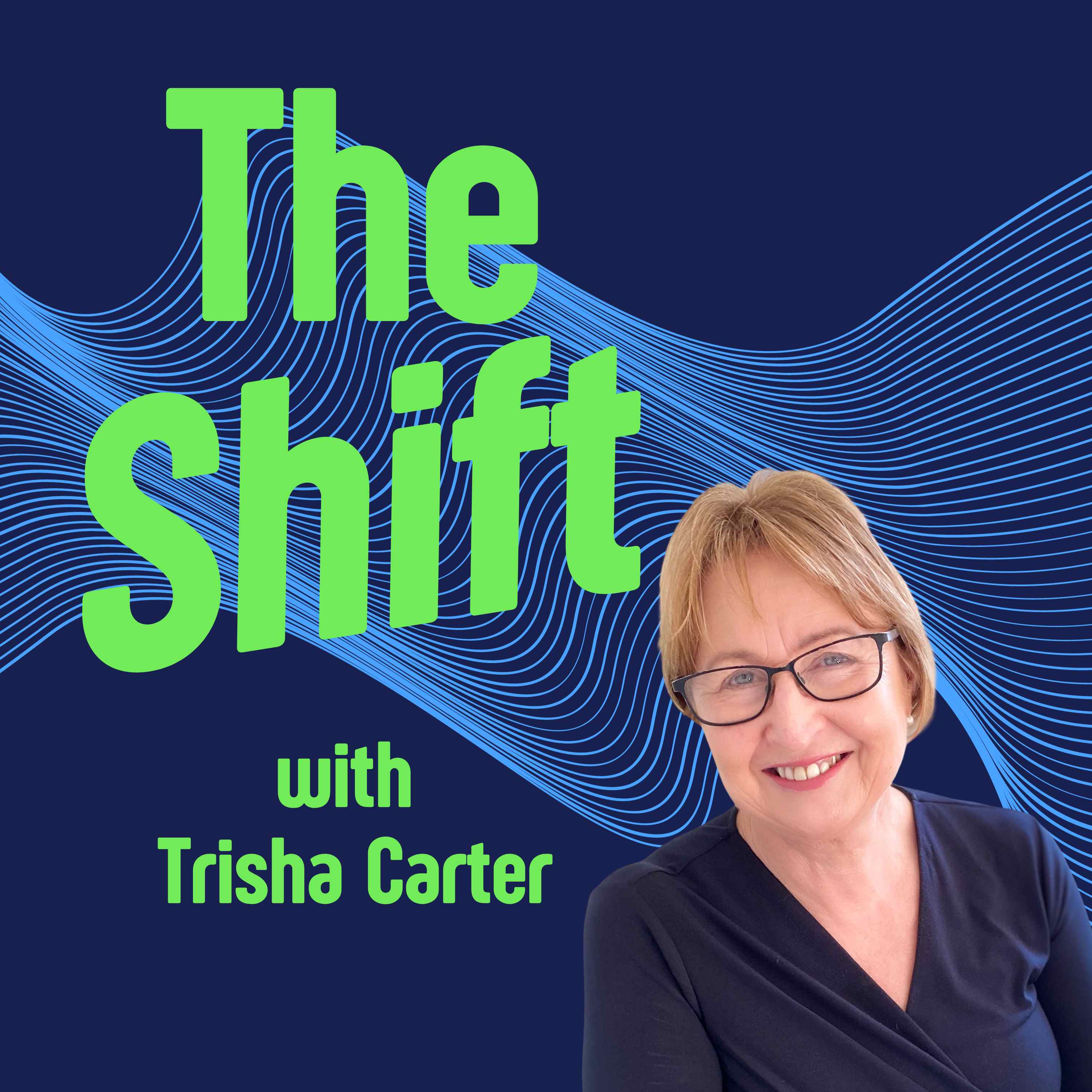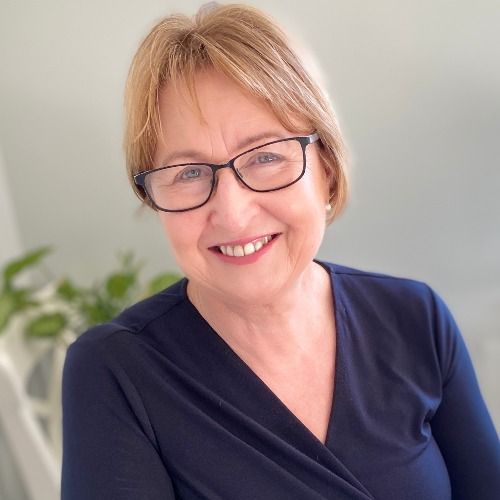Episode 55
CQ Fundamentals - Building Cultural Intelligence Through Reconciliation
In this episode, Trisha takes listeners back to the fundamentals of Cultural Intelligence (CQ), exploring all four capabilities through the lens of Australia's National Reconciliation Week. After 55 episodes focusing primarily on CQ Strategy, she provides a comprehensive overview of the complete CQ framework: Drive (motivation), Knowledge (understanding), Strategy (metacognition), and Action (behavioural adaptation).
Using National Reconciliation Week as a practical example, Trisha demonstrates how each CQ capability can be developed and applied in real-world contexts. The episode includes insights from Sharon Gray (Episode 28), who speaks from her Kamilaroi and Scottish heritage about building cultural understanding and community engagement. Through personal anecdotes and practical applications, listeners discover how cultural intelligence isn't about mastering everything at once, but developing capabilities that work together like instruments in harmony.
Key insights include understanding your cultural motivations, building knowledge thoughtfully, practising metacognitive reflection, and adapting behaviours meaningfully. Trisha emphasises moving beyond performative gestures to genuine cultural engagement, whether in workplace settings or community contexts.
You can connect with Sharon via LinkedIn and listen to her episode, 'Sharon Gray - Winangar Guru: Listen Deeply, Go Slowly and Respect Everything' Here
Make sure you join Trisha in this journey of growth and discovery throughout the year via Substack or LinkedIn.
Transcript
[00:00:39] Trisha: Hi there everyone. I'm Trisha Carter, an organizational psychologist and explorer of cultural Intelligence. I'm on a bit of a quest to discover what enables us to see things from different perspectives, especially different cultural perspectives, and why sometimes it's easier than others to experience those moments of awareness, the shifts in our thinking.
[:[00:01:28] And I realized, apart from way back in episode two when I interviewed David Livermore we spoke then about cultural intelligence and the four capabilities. But since then. I hadn't revisited the basics of CQ and we are now in today's episode at episode 55. So today I want to take you back through the fundamentals of cultural intelligence, what we call CQ and I'm going to use Australia's National Reconciliation Week, which we are currently in the middle of, it runs from May the 27th to June the third each year. And it will be our practical example for how we can develop, how we could develop if we chose to each of our four CQ capabilities. And I guess it means I'm trying to do two big things here. And I'm not an Aboriginal or Torres Strait Islander. I'm not a First Nations representative of Australia.
[:[00:02:44] I am including some snippets from episode 28 where I interviewed my friend and colleague, Sharon Gray. She speaks proudly of both her Kamilaroi and her Scottish heritage. She's been working for many years in the field of building people's cultural capabilities and working with different First Nations communities, and so she has real expertise.
[:[00:03:29] So first of all, what is cultural intelligence? So cultural intelligence or CQ is the capability to be effective in situations of diversity. That means multicultural situations. It might mean people of different generations. It could even mean different organizational cultures. It's made up of four key areas that work together.
[:[00:04:14] CQ knowledge, cognitive. Your understanding of how cultures are similar or different, CQ strategy, metacognitive your ability to think about your thinking and plan and reflect accordingly. And cq action, behavioral, your ability to adapt your behaviors appropriately in different cultural settings. So in this podcast, we usually focus particularly on the metacognitive aspect, thinking about our thinking. That's CQ strategy.
[:[00:05:06] So let's start with CQ Drive, finding Your Motivation. technically, CQ Drive is about your interest, confidence, and willingness to engage with people from different cultural backgrounds. It is, if you like, the fuel that powers your interactions with other people. Some of the motivators might be intrinsic, they might be internal to you. People will often say to me, I'm really interested in learning about other people's culture.
[:[00:05:57] The third aspect is also important. It's confidence, self-efficacy, to those psychologists who might be listening. And it's also really important because if we don't have that confidence, we may never actually do anything in terms of reaching out to people who might be different to us, or for example, trying to greet someone in a new language.
[:[00:06:43] Which is Bridging Now to Next. And that calls on us to build strong, respectful relationships that honor the truths of the past while paving the way forward. And so it might mean that we work to lean towards people to build those relationships, and it might mean we lean towards the truths of the past or working to pave the way forward.
[:[00:07:36] You might find yourself drawn to a Corroboree or cultural performance, feeling that emotional connection that transcends words. It's that internal spark that says, I want to learn more. So for your individual application, maybe you could reflect on your personal motivations for cultural learning. Maybe you could consider what draws you towards or holds you back from cross-cultural engagement. Maybe you could assess your confidence levels in diverse situations, and if identifying, perhaps if there's an area that is more problematic for you, more difficult for you, and then think about how you could address that.
[:[00:08:38] Sharon: It was more than just around, um, you know, getting more Indigenous people into jobs.
[:[00:08:56] Trisha: So the second component is CQ knowledge building cultural understanding. So the definition for CQ knowledge is understanding how cultures are similar and different. That might mean in terms of cultural systems, history, economic systems, legal systems. It might be about language, how words are a gateways to understanding.
[:[00:09:56] These changes removed discriminatory language and empowered the federal government to address inequities faced by indigenous Australians. And then in more recent historical contexts, on May 26th, we acknowledged, sorry, day
[:[00:10:41] Understanding these historical moments, both the painful truths and the steps towards healing help us grasp the contemporary landscape of reconciliation. When we think about history, we know as a country that Australia and Australians really value acknowledging what has happened in our past to learn from how it shapes our future.
[:[00:11:26] CQ knowledge might sound a bit overwhelming, like there's a lot of learning to be done, but it's not about knowing every detail of every culture. That's just impossible. Even in my own culture, I don't understand or recognize the differences in different generations and how they've experienced that culture.
[:[00:12:05] We've talked about high power distance and low power distance, and how that impacts in authority, relationships, and status relationships. We've spoken about individual and collective orientations, and we've talked about communication styles, some speaking more directly and others indirectly. We've also touched on different time orientations.
[:[00:12:44] and we can hold the two in our thinking together, our own experience and how others might be experiencing things. Sharon beautifully explained her bicultural experience.
[:[00:13:05] And, so, yeah, so I do pay a lot of respect to my Scottish, background. And, And there's a lot of synergy between Scottish and my Indigenous inheritance as well.
[:[00:13:46] And most importantly, it can be so helpful if you understand your own cultural background and identify the preferences that you have in your ways of thinking.
[:[00:14:27] So for National Reconciliation Week, this might involve reflecting what assumptions am I making about reconciliation, or how can I engage with this in a way that's meaningful rather than just performative? If I'm in an organizational setting that requires me to do some things. So it's about thinking about your approach thoughtfully.
[:[00:15:28] There was a circle you couldn't marry, and even of a circle of people that you shouldn't talk to. It was a beautiful pattern of relationships that I didn't fully understand, but I could see supported people in a complex but powerful way of relating. And then the artist looked up from this beautiful pattern she had created and looked at the audience and said, and then they came and took the children away, and she slashed her hand through that complex pattern of circles and destroyed them.
[:[00:16:28] I'll come back to that in a minute.
[:[00:16:54] Sharon shared this powerful concept,
[:[00:17:10] Trisha: So for the individual application, you might like to practice the pause and reflect approach before cultural interactions. And we shared that in a very recent episode. 52 and 53 speak about shift and pause, and so those episodes will help you to think explicitly about your thinking. You can also develop self-awareness about biases that you might hold, or assumptions that you might automatically make.
[:[00:17:45] CQ action is your ability to modify your verbal and nonverbal behavior when different situations require it. It's about having a flexible repertoire of behaviors you can draw upon. It might be about speech and what you say or how you say things. It's also about nonverbal ways of operating and acting.
[:[00:18:29] You could think about making your acknowledgement of country real, so not a meaningless protocol. Too often we race through these acknowledgements like we're reading the fine print. Cq action means slowing them down, understanding what you're saying, speaking with genuine respect and intention, and applying it to the situation you're in right now.
[:[00:19:16] Do you always have to shake hands with that, firm handshake that your father told you to shake hands with, or can you adapt? Can you not shake hands if that's not appropriate? Can you shake hands softly? What participation style changes might you need to make? And are there protocol and etiquette adaptations that you might need to make in the situations you are in?
[:[00:19:44] Sharon: the way that I talk to my team, it's almost like our job is to hold someone's hand and walk with them and help them see what we see.
[:[00:20:16] Sharon: I quite often liken the world to a chocolate cake.
[:[00:20:40] Trisha: So developing cultural intelligence isn't about mastering everything at once. During reconciliation week, you might like to start with drive, find one aspect that genuinely interests you, build some knowledge, learn about one specific topic. Or story apply strategy. Reflect on what you're learning and why it matters, and practice action.
[:[00:21:25] In this episode, we're focused on you as an individual, building your cultural intelligence. When I spoke with Sharon in episode 28, we also looked at the organization and its responsibilities and commitments to building CQ. So I recommend that you go back and listen to that one if you're interested from an organizational perspective, and if you want to speak with me further, please reach out because this is the work that I do, both individual and organizational, so to close National Reconciliation Week.
[:[00:22:15] In our upcoming episodes, we'll continue exploring these concepts with guests who can share their lived experiences and professional insights.
[:[00:22:47] If this episode resonated with you, please share it with someone who might also be exploring cultural perspectives. Follow us on your preferred podcast platform. That means pushing, subscribe, or like, or follow, and join us next week on the shift.
[:
